Over one hundred people attended the first Nokia Developers Day in Santiago, Chile. The event was held at the Pontificia Universidad Católica de Chile, which is the university where I have been teaching a course about development of mobile phone applications, at the computer science department.
The first part of the event was 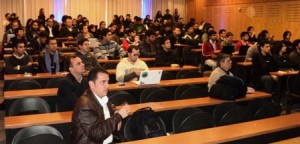 a general introduction to the current market strategy and opportunities that Nokia is providing to the local developers. One of the most important topics covered was that Nokia supports global payment via network operators. This means that people around the world can pay for your application without using their credit cards, which makes it easier to sell for the developer. Another important point is that feature phones, of which Nokia still has a large market share, are getting smarter every day. This means that feature phones now support touch UI, have capable CPUs, and new APIs are appearing for them, such as the Nokia Maps API. On top of this data plans are getting cheaper, so many people are getting always on connectivity with these devices. At the end of this session, key players from local development companies presented their experience developing for Nokia handsets.
a general introduction to the current market strategy and opportunities that Nokia is providing to the local developers. One of the most important topics covered was that Nokia supports global payment via network operators. This means that people around the world can pay for your application without using their credit cards, which makes it easier to sell for the developer. Another important point is that feature phones, of which Nokia still has a large market share, are getting smarter every day. This means that feature phones now support touch UI, have capable CPUs, and new APIs are appearing for them, such as the Nokia Maps API. On top of this data plans are getting cheaper, so many people are getting always on connectivity with these devices. At the end of this session, key players from local development companies presented their experience developing for Nokia handsets.
In the second half, I presented the Qt framework for software development on multiple platforms with a focus on Symbian. The idea of the talk was to motivate the use of Qt for mobile phone application development, based on the fact that it is a mature framework, with more than 18 years of development. The mixture of a powerful framework, such as Qt, with integrated sensors, 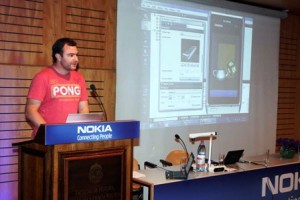 such as GPS, accelerometers, cameras, bluetooth, etc…, gives the developers the ability to create innovative applications easily. Some examples of these applications are mixed or augmented reality type of applications. You can use the GPS to locate yourself broadly, then you can use the accelerometer to know where the device is pointing at. After that, you can use the camera to process what the phone is looking at since the whole world is filtered to just a small area. This is just an example of which type of applications you can develop since with these tools your imagination is the limit. Also, since Qt is a multi platform SDK, you can port your application to Windows, Linux, Mac, and others simply by selecting that platform from a drop down menu and clicking the compile button.
such as GPS, accelerometers, cameras, bluetooth, etc…, gives the developers the ability to create innovative applications easily. Some examples of these applications are mixed or augmented reality type of applications. You can use the GPS to locate yourself broadly, then you can use the accelerometer to know where the device is pointing at. After that, you can use the camera to process what the phone is looking at since the whole world is filtered to just a small area. This is just an example of which type of applications you can develop since with these tools your imagination is the limit. Also, since Qt is a multi platform SDK, you can port your application to Windows, Linux, Mac, and others simply by selecting that platform from a drop down menu and clicking the compile button.

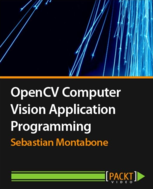

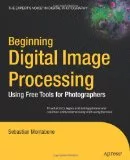
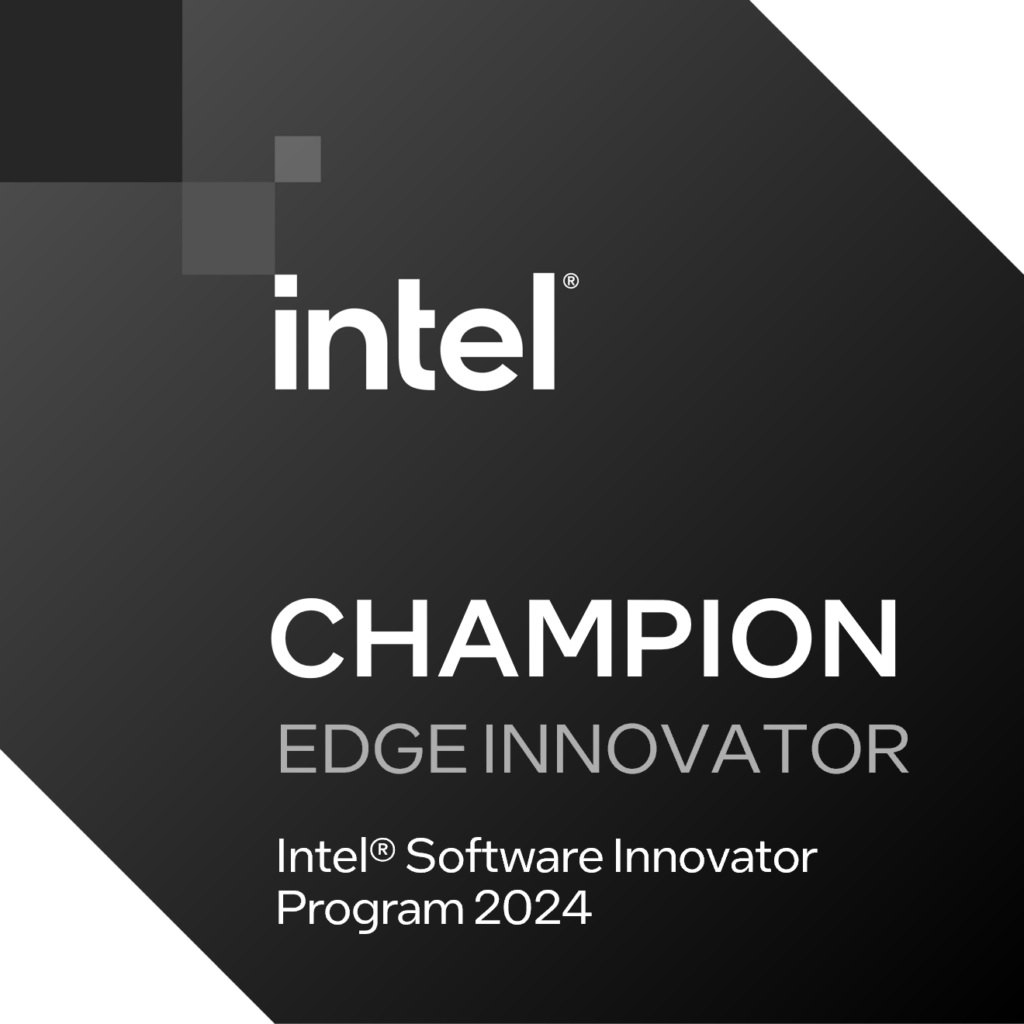
0 Responses
Stay in touch with the conversation, subscribe to the RSS feed for comments on this post.